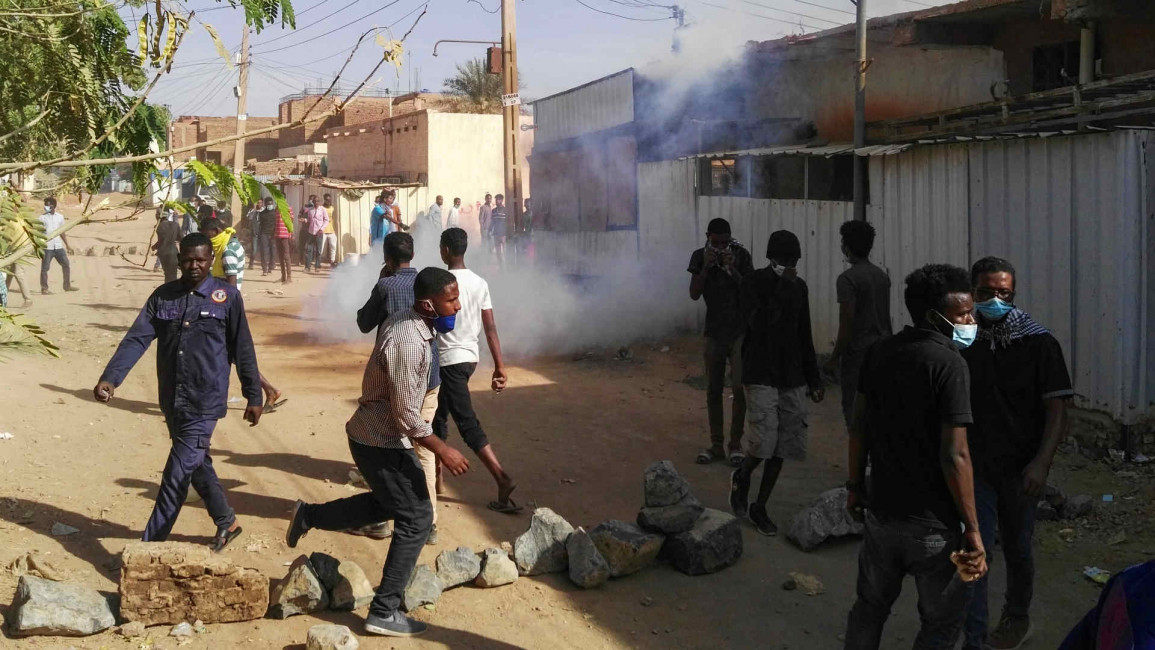Sudan overturns flogging sentence, jail term for women who protested against Bashir
The sentencing of the women on Saturday to a month in prison and 20 lashes in an emergency court prompted severe condemnation by activists and human rights groups.
The women's defence lawyer Enaam Atieg appealed the verdict on Sunday, and the appeals court ordered their release on Tuesday, the Democratic Alliance of Lawyers said.
The decision to waive the flogging came amid pressure from the families of the women, who rallied outside the courthouse on Saturday, and the Democratic Alliance of Lawyers, which is part of the Sudanese Professionals Association, one of the main organisers of the protests over the past three months.
The women were arrested after participating in a demonstration in Burri, a neighbourhood of the capital Khartoum which has been a hotspot for protests since the popular movement to unseat Bashir began in mid-December.
Unauthorised demonstrations were banned by Bashir in late February as the leader increased his crackdown on dissent under a state of emergency.
The Sudanese authorities have set up special emergency courts to prosecute violations of the nationwide state of emergency imposed by Bashir on February 22 in an attempt to end the widespread demonstrations.
More than 800 people have been tried in the emergency courts so far, the Democratic Alliance of Lawyers said.
Flogging does not usually apply as a punishment for political participation.
Hundreds of women are sentenced to flogging every year under a controversial public order law which criminalises wearing "obscene clothes", such as trousers and knee-length skirts, and "indecent" behaviour in public.
Protests erupted in mid-December when a government decision to cut surpluses led to tripled bread prices, exacerbating the poor financial situation of many in a country which many Sudanese say has been dogged by corruption, economic mismanagement and human rights abuses.
The protests quickly spread across the country and took on a broader political message - calling on Bashir, who took power in a 1989 military coup, to step down.
Sudanese officials claim 30 people have died in protest-related violence, but Human Rights Watch says at least 51 have been killed during the brutal crackdown. Activists say some of those killed died under torture while being detained by Sudan's security services.

![Hundreds demonstrate against the White House Correspondents' Dinner in support of Gazan journalists. [Brooke Anderson/TNA]](/sites/default/files/styles/image_330x185/public/2024-04/5cde0bce-4652-4e28-a001-f06b9b8f8e28.jpg?h=ddb1ad0c&itok=R_uaRAn7)

